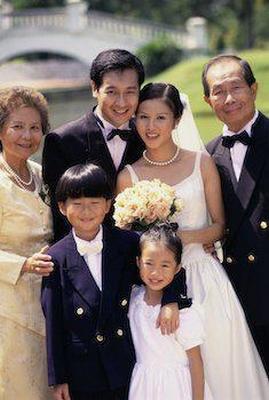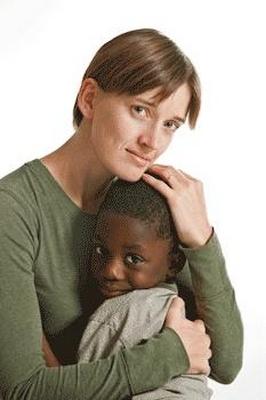Free Initial Consultations
 630-580-6373
630-580-6373With offices in Naperville, Joliet, Wheaton, Plainfield & Chicago
Planning to marry after a divorce is usually a joyous time. Before jumping in and saying “I do” for a second time, however, there are some important steps you should take in order to ensure that your marriage can beat the odds and last for the long-term.  According to the American Psychological Association, there are three key issues that couples need to address before remarrying after a divorce:
According to the American Psychological Association, there are three key issues that couples need to address before remarrying after a divorce:
 In Illinois, there has been an increase in the number of children who die due to abuse and neglect. For the fiscal year ending in June of 2013, the number of children who passed away from abuse and neglect was the highest it has been in 30 years. The saddest news about this total is that some of these deaths may have been avoided. An Illinois Senate subcommittee has been questioning state officials from the Department of Child and Family Services about this steep increase. Acting director of the DCFS, Denise Gonzales, admitted that over 100 children died due to mistreatment and ten more cases are still pending. The average per year total has been around 75 for the last 30 years. About 75 percent of the deaths were caused by accidental suffocation from infants sleeping with blankets, or with their parents or on their stomachs. In the past these types of cases were only classified as neglect if the parents were under the influence of drugs or alcohol. Now children who suffocate while sleeping are categorized as neglect cases if it can be proven that the parents knew about the dangers of letting children sleep on their stomachs or with blankets and other items. But it was also found that the DCFS in Illinois has been suffering from a larger caseload with a smaller staff. Although a senator asked for the resignation of Gonzales, that might not happen. Gonzales took over when the previous head of the DCFS resigned due to a terminal cancer diagnosis. Gonzales is still dedicated to making the DCFS better by reducing caseloads, leaning out middle management and improving the hotline for reporting child neglect. The DCFS will continue to receive tips about possible abuse and neglect that is occurring in Illinois. If you are summoned to juvenile court by the DCFS then it is important to be prepared. The consequences may be losing care of your children or being placed under court supervision. Contact a skilled family law attorney in Warrenville today to review your case.
In Illinois, there has been an increase in the number of children who die due to abuse and neglect. For the fiscal year ending in June of 2013, the number of children who passed away from abuse and neglect was the highest it has been in 30 years. The saddest news about this total is that some of these deaths may have been avoided. An Illinois Senate subcommittee has been questioning state officials from the Department of Child and Family Services about this steep increase. Acting director of the DCFS, Denise Gonzales, admitted that over 100 children died due to mistreatment and ten more cases are still pending. The average per year total has been around 75 for the last 30 years. About 75 percent of the deaths were caused by accidental suffocation from infants sleeping with blankets, or with their parents or on their stomachs. In the past these types of cases were only classified as neglect if the parents were under the influence of drugs or alcohol. Now children who suffocate while sleeping are categorized as neglect cases if it can be proven that the parents knew about the dangers of letting children sleep on their stomachs or with blankets and other items. But it was also found that the DCFS in Illinois has been suffering from a larger caseload with a smaller staff. Although a senator asked for the resignation of Gonzales, that might not happen. Gonzales took over when the previous head of the DCFS resigned due to a terminal cancer diagnosis. Gonzales is still dedicated to making the DCFS better by reducing caseloads, leaning out middle management and improving the hotline for reporting child neglect. The DCFS will continue to receive tips about possible abuse and neglect that is occurring in Illinois. If you are summoned to juvenile court by the DCFS then it is important to be prepared. The consequences may be losing care of your children or being placed under court supervision. Contact a skilled family law attorney in Warrenville today to review your case.
 One of the major causes of contention during a divorce is the division of property. While a judge can control the distribution, it does not make the fighting stop. Arguing about property division can also add a lot of time to the litigation process and more legal costs. Since both spouses are responsible for accumulating the property of a marriage, it can be more advantageous to divide this property together as well.
The first step is to create a record of what is commonly owned. It is important to include all assets or risk the penalty of omitting property. Then it is important to assign a monetary value to each item either together or with the help of a third party. For items like cars, houses, and other expensive and complex assets, it will be necessary to consult an expert to value them. Next go through the list together to find if it is more logical for one spouse to continue owning the property. If it seems necessary for equality, the assigned values of each asset can allow a tally for each spouse.
If assigning a logical owner does not work, there are other ways to accomplish a split as a couple.
One of the major causes of contention during a divorce is the division of property. While a judge can control the distribution, it does not make the fighting stop. Arguing about property division can also add a lot of time to the litigation process and more legal costs. Since both spouses are responsible for accumulating the property of a marriage, it can be more advantageous to divide this property together as well.
The first step is to create a record of what is commonly owned. It is important to include all assets or risk the penalty of omitting property. Then it is important to assign a monetary value to each item either together or with the help of a third party. For items like cars, houses, and other expensive and complex assets, it will be necessary to consult an expert to value them. Next go through the list together to find if it is more logical for one spouse to continue owning the property. If it seems necessary for equality, the assigned values of each asset can allow a tally for each spouse.
If assigning a logical owner does not work, there are other ways to accomplish a split as a couple.
 These acts are considered domestic abuse if they are carried out by a family or household member. Under Illinois law, a family or household member can be any of the following:
These acts are considered domestic abuse if they are carried out by a family or household member. Under Illinois law, a family or household member can be any of the following:
 They also can overly spoil their grandchildren with affection, attention and love. And in some cases, the grandparents have a limited legal right to visitation of their grandchildren in Illinois, especially when the parents divorce.
There are certain requirements that must be met for an Illinois court will grant visitation to grandparents. The first is that the children must be at least one year old. The other requirement is that one of the following circumstances must exist:
They also can overly spoil their grandchildren with affection, attention and love. And in some cases, the grandparents have a limited legal right to visitation of their grandchildren in Illinois, especially when the parents divorce.
There are certain requirements that must be met for an Illinois court will grant visitation to grandparents. The first is that the children must be at least one year old. The other requirement is that one of the following circumstances must exist:
 The current lawmakers in Washington DC have been historically slow in creating new laws. There has been too much conflict between the liberals and conservatives on the hill. But a new law that has been proposed looks to unite both sides of the aisle with an issue that is beyond politics. That bill is called the Children in Families First or CHIFF Act. The bill was introduced by State Representatives Kay Granger(R-TX) and Karen Bass (D-CA). Granger said that “every child deserves a family. Parents looking to adopt internationally are already at the mercy of complicated adoption bureaucracies abroad. They shouldn’t have to deal with similar costs and delays here at home. Without increasing spending, the Children in Families First Act helps loving families navigate the adoption process and welcome new additions to their homes.” Overall, foreign adoptions have declined over the years. Almost 23,000 children were adopted internationally in 2004. That decreased steadily to below 9,000 in 2012. There are certain reasons for the decrease as some countries do not allow children to be adopted by Americans. In other countries, the rate of domestic adoptions has increased which also means that fewer children are able to be adopted by Americans. One of the proposed results of this bill is the creation of a new bureau in the State Department whose would work with other countries to place children with families. This would be accomplished with adoption, or family reunification or kinship care. Instead of allowing children to languish without the love of a family, CHIFF hopes to support an increase in international adoptions. There are plenty of children that need loving families. If you have decided that your family is prepared to love a child in need, then you should contact a family law professional who has experience in this process. Contact a knowledgeable family law attorney in DuPage County who can help you add more love to your family.
The current lawmakers in Washington DC have been historically slow in creating new laws. There has been too much conflict between the liberals and conservatives on the hill. But a new law that has been proposed looks to unite both sides of the aisle with an issue that is beyond politics. That bill is called the Children in Families First or CHIFF Act. The bill was introduced by State Representatives Kay Granger(R-TX) and Karen Bass (D-CA). Granger said that “every child deserves a family. Parents looking to adopt internationally are already at the mercy of complicated adoption bureaucracies abroad. They shouldn’t have to deal with similar costs and delays here at home. Without increasing spending, the Children in Families First Act helps loving families navigate the adoption process and welcome new additions to their homes.” Overall, foreign adoptions have declined over the years. Almost 23,000 children were adopted internationally in 2004. That decreased steadily to below 9,000 in 2012. There are certain reasons for the decrease as some countries do not allow children to be adopted by Americans. In other countries, the rate of domestic adoptions has increased which also means that fewer children are able to be adopted by Americans. One of the proposed results of this bill is the creation of a new bureau in the State Department whose would work with other countries to place children with families. This would be accomplished with adoption, or family reunification or kinship care. Instead of allowing children to languish without the love of a family, CHIFF hopes to support an increase in international adoptions. There are plenty of children that need loving families. If you have decided that your family is prepared to love a child in need, then you should contact a family law professional who has experience in this process. Contact a knowledgeable family law attorney in DuPage County who can help you add more love to your family.
 Divorce can be an emotional and heartbreaking experience for a family or individual. However, a new study, published in the Journal Social Psychological and Personality Science, suggests that individuals who have endured hardships, like divorce, are more appreciative of the good things in life. The authors of the study note, “The worst experiences in life may come with an eventual upside, by promoting the ability to appreciate life’s small pleasures.” Conducted by Alyssa Croft, Elizabeth W. Dunn and Jordi Quoidbach, their research reveals how “individuals who had dealt with more adversity in the past reported an elevated capacity for savoring.” However, of the 14,986 adult participants, those who were in the midst of a crisis reported a decrease in tendency to savor positive events. While it is natural to feel down when going through a crisis, this study confirms that an appreciation for life is built through these experiences, and that there is hope for moving on. For those struggling to heal and move on, Terry Gasbard, a licensed clinical social worker and college instructor, offers six suggestions. Gasbard’s analysis begins with assuring divorcees that it is normal to be affected by emotional reactions caused by the ending of a relationship, and that despite the divorce, those individuals are still worthwhile and do not have to allow the end of their love relationship to define their self-worth. She states, “No person can complete you.” She also suggests allowing proper time for healing and staying open to “new experiences, hobbies, or interests” that could not pursued prior to divorce. Finally, she suggests forming supportive relationships. Gasbard says, “Being with people who accept and support you can help ease feeling of rejection. Get energized by the possibilities ahead for you.” If you are struggling with divorce in Illinois, please know you do not have to go through it alone. Contact an experienced DuPage Family Law Attorney who will compassionately guide you through the legal process.
Divorce can be an emotional and heartbreaking experience for a family or individual. However, a new study, published in the Journal Social Psychological and Personality Science, suggests that individuals who have endured hardships, like divorce, are more appreciative of the good things in life. The authors of the study note, “The worst experiences in life may come with an eventual upside, by promoting the ability to appreciate life’s small pleasures.” Conducted by Alyssa Croft, Elizabeth W. Dunn and Jordi Quoidbach, their research reveals how “individuals who had dealt with more adversity in the past reported an elevated capacity for savoring.” However, of the 14,986 adult participants, those who were in the midst of a crisis reported a decrease in tendency to savor positive events. While it is natural to feel down when going through a crisis, this study confirms that an appreciation for life is built through these experiences, and that there is hope for moving on. For those struggling to heal and move on, Terry Gasbard, a licensed clinical social worker and college instructor, offers six suggestions. Gasbard’s analysis begins with assuring divorcees that it is normal to be affected by emotional reactions caused by the ending of a relationship, and that despite the divorce, those individuals are still worthwhile and do not have to allow the end of their love relationship to define their self-worth. She states, “No person can complete you.” She also suggests allowing proper time for healing and staying open to “new experiences, hobbies, or interests” that could not pursued prior to divorce. Finally, she suggests forming supportive relationships. Gasbard says, “Being with people who accept and support you can help ease feeling of rejection. Get energized by the possibilities ahead for you.” If you are struggling with divorce in Illinois, please know you do not have to go through it alone. Contact an experienced DuPage Family Law Attorney who will compassionately guide you through the legal process.
 Illinois family law 750 ILCS 5/607 allows a stepparent visitation rights with their stepchildren in cases where the court determines it is in the best interest of the child. A petition for stepparent visitation rights may be filed if:
Illinois family law 750 ILCS 5/607 allows a stepparent visitation rights with their stepchildren in cases where the court determines it is in the best interest of the child. A petition for stepparent visitation rights may be filed if:
